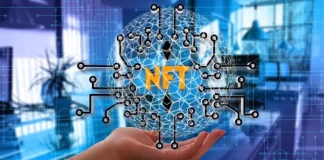
The AI Revolution in Healthcare: Transforming the Future
Artificial Intelligence (AI) has the potential to revolutionize the healthcare industry, transforming the way medical professionals diagnose, treat, and manage diseases. With the ability to analyze vast amounts of data, identify patterns, and make predictions, AI technologies offer unprecedented opportunities for improving patient outcomes, enhancing efficiency, and advancing medical research. In this article, we explore how AI is poised to revolutionize the healthcare industry, featuring insights from two experts in the field.
Dr. Lisa Chen, an AI in Healthcare Researcher says “The integration of AI in healthcare holds tremendous promise for transforming the delivery of care. AI-powered technologies can augment the capabilities of healthcare professionals, enabling faster and more accurate diagnoses, personalized treatment plans, and proactive disease prevention. The potential impact of AI in revolutionizing healthcare cannot be overstated.”
Dr. Michael Johnson, a Medical Technology Innovator says “AI has the potential to unlock new frontiers in healthcare by leveraging data-driven insights and predictive analytics. It can assist in early disease detection, facilitate precision medicine, and improve patient monitoring. The successful adoption of AI technologies in healthcare hinges on collaboration between technologists, healthcare providers, and policymakers to ensure ethical, secure, and patient-centric implementation.”
AI-powered algorithms can analyze medical images, such as X-rays, MRIs, and CT scans, with remarkable precision and speed. This enables more accurate and timely diagnoses, especially in complex cases. Additionally, AI algorithms can assist in treatment planning by recommending tailored therapies based on patient data, medical history, and outcomes from similar cases, thereby improving treatment efficacy and patient outcomes.
By analyzing vast amounts of patient data, including electronic health records (EHRs), genomics, and wearable device data, AI can identify patterns and predict health risks. This allows healthcare providers to proactively intervene, implement preventive measures, and develop personalized treatment plans. AI algorithms can also help identify patients at risk of readmission, enabling early interventions to reduce hospital readmission rates.
AI-powered algorithms and machine learning techniques are revolutionizing the process of drug discovery and development. By analyzing large datasets and identifying molecular patterns, AI can accelerate the identification of potential drug targets, optimize drug design, and predict drug efficacy. This can significantly shorten the time and cost involved in bringing new drugs to market, leading to more effective treatments for patients.
AI-powered virtual assistants, chatbots, and voice recognition systems are transforming the patient experience and improving access to healthcare. These technologies can provide personalized health information, answer patient queries, and even assist in preliminary diagnosis. Furthermore, telemedicine platforms powered by AI enable remote consultations, facilitating access to healthcare services for individuals in remote areas or with limited mobility.
AI can optimize healthcare operations by automating administrative tasks, streamlining workflows, and improving resource allocation. Intelligent scheduling systems can optimize appointment scheduling, reducing wait times and improving patient flow. AI can also assist in inventory management, predicting demand for medical supplies and optimizing stock levels, thereby reducing waste and minimizing costs.
The successful integration of AI in healthcare requires addressing ethical considerations and ensuring patient privacy and data security. Transparent and explainable AI algorithms, robust data governance frameworks, and compliance with regulatory standards are essential. Collaboration among healthcare professionals, technologists, policymakers, and ethicists is crucial to develop guidelines that prioritize patient well-being and protect sensitive information.
AI is set to revolutionize the healthcare industry, empowering medical professionals, improving patient outcomes, and driving innovation. From diagnosis and treatment to drug discovery and operational efficiency, AI technologies offer immense potential. However, successful integration requires a multidisciplinary approach, addressing ethical considerations, and ensuring patient privacy. By embracing AI advancements, the healthcare industry can pave the way for a future that is characterized by precision medicine, proactive care, and improved patient well-being.


